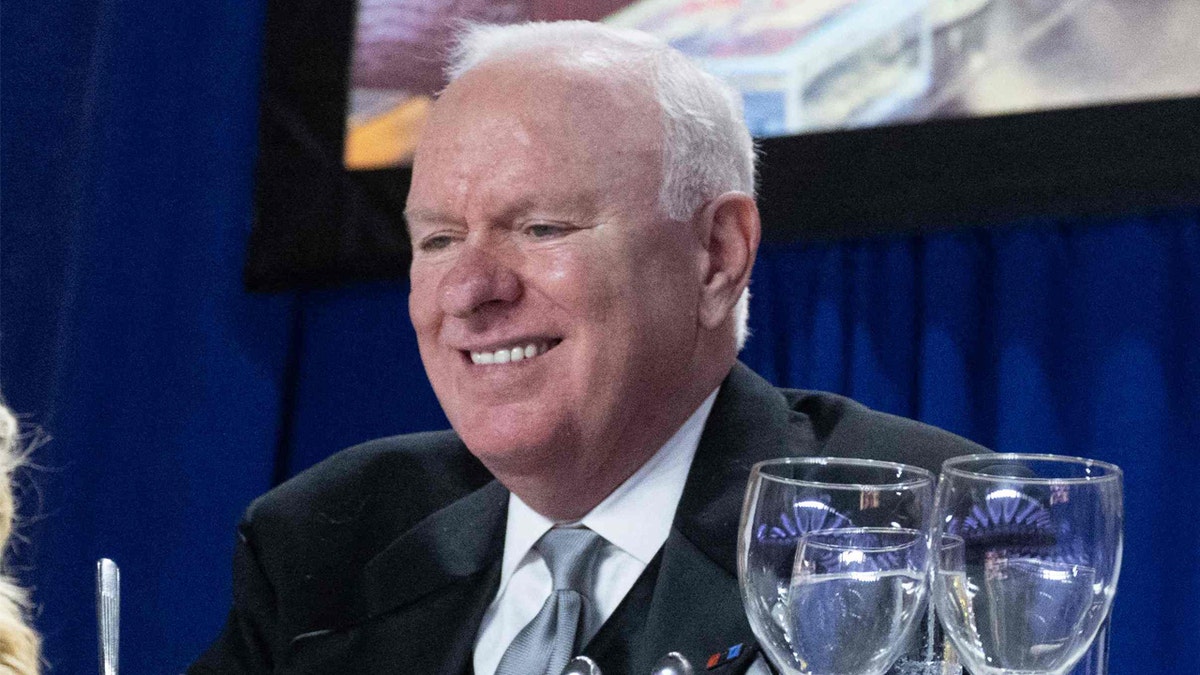Longtime NPR editor rips own employer over alleged political bias
Fox News' Howard Kurtz reacts to the media organization coming under fire for its liberal leanings in its coverage on ‘Special Report.’
The bombshell essay penned by a veteran National Public Radio journalist puts a spotlight on what's been called NPR's "obsession" with the left-wing DEI (Diversity, Equity and Inclusion) ideology.
Uri Berliner, the senior business editor and a 25-year NPR veteran, went viral for exposing how liberal groupthink has captured the NPR newsroom and drew significant attention to diversity becoming the news outlet's so-called "North Star" following the death of George Floyd in 2020.
"It was an anguished time in the newsroom, personally and professionally so, for NPR staffers. Floyd’s murder, captured on video, changed both the conversation and the daily operations at NPR," Berliner described in a piece published in The Free Press.
NPR EDITOR REBUKES OUTLET'S OWN COVERAGE OF HUNTER BIDEN LAPTOP, COVID LAB LEAK AND RUSSIAGATE

Veteran NPR editor Uri Berliner went viral with his bombshell essay calling out the left-wing groupthink that has taken over the newsroom. (JP Yim/WireImage)
Berliner repeatedly cited then-NPR CEO John Lansing, who left the organization last fall after a four-year tenure.
"When it comes to identifying and ending systemic racism, we can be agents of change," Lansing wrote to staff at the time. "Listening and deep reflection are necessary but not enough. They must be followed by constructive and meaningful steps forward. I will hold myself accountable for this."
An article published by NPR in September 2020 declared DEI "is not a project: it is our work" with Lansing stating, "the leaders in public media — starting with me — must be aware of how we ourselves have benefitted from white privilege in our careers. We must understand the unconscious bias we bring to our work and interactions. And we must commit ourselves — body and soul — to profound changes in ourselves and our institutions."

Former NPR president and CEO John Lansing made diversity of staff and audience the news outlet's "North Star" above all else following George Floyd's death, according to Berliner. (SAUL LOEB/AFP via Getty Images)
According to Berliner, Lansing "declared" that diversity of NPR's staff and audience was "the overriding mission, the ‘North Star’ of the organization" and that race and identity had "became paramount in nearly every aspect of the workplace." Several affinity groups dedicated to various subsets of NPR staffers were also formed, including "MGIPOC (Marginalized Genders and Intersex People of Color mentorship program); Mi Gente (Latinx employees at NPR); NPR Noir (Black employees at NPR); Southwest Asians and North Africans at NPR; Ummah (for Muslim-identifying employees); Women, Gender-Expansive, and Transgender People in Technology Throughout Public Media; Khevre (Jewish heritage and culture at NPR); and NPR Pride (LGBTQIA employees at NPR)."
NPR also began requiring its journalists to log the "race, gender, and ethnicity," among other traits, of their interviewees and sources in a "centralized tracking system" that monitored diversity.
"I wouldn't have a problem with it if we were also looking at trying to figure out people's perspective, their viewpoint. I didn't love it, but I also think it was very limited. If we were going to do it, let's go all the way," Berliner told The Free Press founder Bari Weiss on her "Honestly" podcast.
NPR HIT WITH MASSIVE LAYOFFS, CANCELS 4 PODCASTS
DePauw University journalism professor Jeffrey McCall told Fox News Digital that tracking sources based on their identity "artificially disrupts the process of sourcing and researching the news."
"A tracking system is certainly designed to chill the reporting process and alter the normal journalism instincts to go where the story can best be told," McCall argued.
"The obsession at NPR on race and diversity post-George Floyd is a microcosm of the destructive impact of DEI," Cornell Law School professor and media critic William A. Jacobson told Fox News Digital. "Rather than focusing on the accuracy of a source's information, the source's race, ethnicity, and other identities were tracked and used to measure reporting performance. The news and reporting mission were inevitably corrupted."

NPR required journalists to log the race, ethnicity and gender of all interview subjects and sources in what Berliner called a diversity-based "centralized tracking system." (SAUL LOEB/AFP via Getty Images)
NPR editor-in-chief Edith Chapin sent a memo to staff Tuesday saying she and her leadership team colleagues "strongly disagree" with Berliner's essay and are "proud to stand behind the exceptional work" of their journalists.
"We believe that inclusion - among our staff, with our sourcing, and in our overall coverage - is critical to telling the nuanced stories of this country and our world," Chapin wrote. "We track sources… so we can expand the diversity of perspectives in our reporting."
CLICK HERE TO GET THE FOX NEWS APP
While diversity of skin color took priority at NPR, Berliner told Weiss "diversity of outlook" had ultimately fallen by the wayside, pointing to his own stats that found while 87 of NPR's editors were registered Democrats, zero were Republican.
Berliner also acknowledged the irony of NPR's diversity push, which resulted in 2023 with only 6% of its audience being Black and 7% being Hispanic, something he stressed "doesn’t come close to reflecting America" since NPR's audience is "overwhelmingly White and progressive, and clustered around coastal cities and college towns."
NPR did not respond to requests for comment.









































